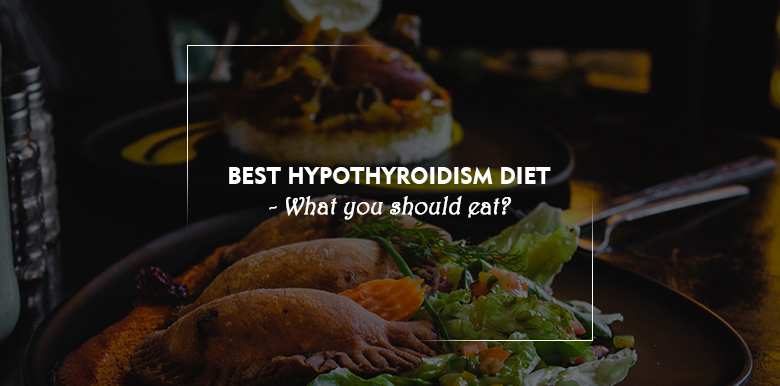Hypothyroidism is a condition in which the body doesn’t make enough thyroid hormones.
Thyroid hormones help control growth and metabolism. As a result, people with hypothyroidism may experience tiredness, hair loss, weight gain, feeling cold, and feeling down, among many other symptoms.
Hypothyroidism affect on metabolism –
The thyroid hormone helps to control speed of your metabolism.
People with hypothyroidism make less thyroid hormone. This means they have a slower metabolism and burn fewer calories at rest.
Having a slow metabolism comes with several health risks. It may leave you tired, increase your blood cholesterol levels, and make it harder for you to lose weight.
Nutrients that are helpful in hypothyroidism –
Iodine –
Iodine is an essential mineral that’s needed to make thyroid hormones. Thus, people with iodine deficiency might be at risk of hypothyroidism.
Iodine deficiency is very common and affects nearly one-third of the world’s population. However, it’s less common in people from developed countries like the United States, where iodized salt and iodine-rich seafood is widely available.
If you have an iodine deficiency, consider adding iodized table salt to your meals or eating more iodine-rich foods like seaweed, fish, dairy, and eggs.
Iodine supplements are unnecessary, as you can get plenty of iodine from your diet. Some studies have also shown that getting too much of this mineral may damage the thyroid gland.
Selenium –
Selenium helps “activate” thyroid hormones so they can be used by the body.
This essential mineral also has antioxidant benefits, which means it may protect the thyroid gland from damage by molecules called free radicals.
Adding selenium-rich foods to your diet is a great way to boost your selenium levels. This includes Brazil nuts, tuna, sardines, eggs, and legumes.
However, avoid taking a selenium supplement unless advised by your healthcare provider. Supplements provide large doses, and selenium may be toxic in large amounts.
Zinc –
Like selenium, zinc helps the body “activate” thyroid hormones.
Studies also show that zinc may help the body regulate TSH, the hormone that tells the thyroid gland to release thyroid hormones.
Zinc deficiencies are rare in developed countries, as zinc is abundant in the food supply.
Nonetheless, if you have hypothyroidism, you should aim to eat more zinc-rich foods like oysters and other shellfish, beef, and chicken.
Foods to eat –
There are plenty of food options for people with hypothyroidism, including:
eggs: whole eggs are best, as much of their iodine and selenium are found in the yolk, while the whites are full of protein
meat: all meats, including lamb, beef, chicken, etc.
fish: all seafood, including salmon, tuna, halibut, shrimp, etc.
vegetables: all vegetables — cruciferous vegetables are fine to eat in moderate amounts, especially when cooked
fruits: all other fruits, including berries, bananas, oranges, tomatoes, etc.
gluten-free grains and seeds: rice, buckwheat, quinoa, chia seeds, and flax seeds
dairy: all dairy products, including milk, cheese, yogurt, etc.
beverages: water and other non-caffeinated beverages
Meal plan –
breakfast: toast with eggs
lunch: chicken salad
dinner: stir-fried chicken and vegetables served with rice
People with hypothyroidism should eat a diet based around vegetables, fruits, and lean meats. They are low in calories and very filling, which may help prevent weight gain.
